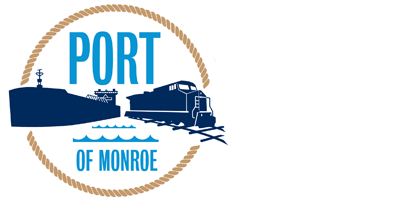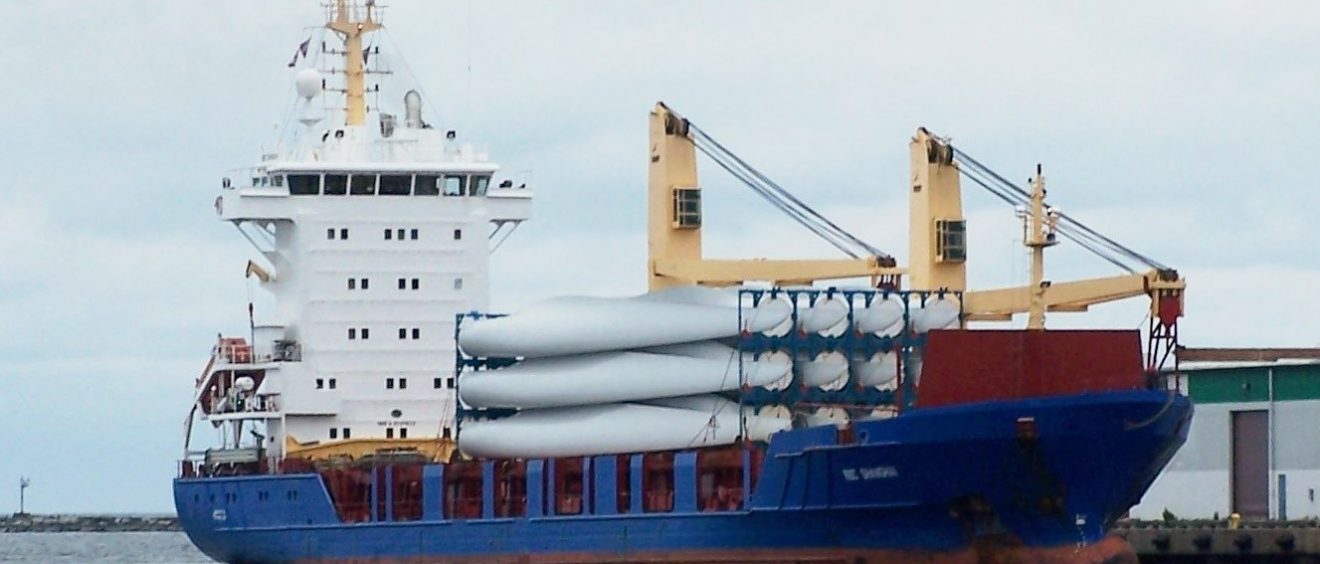The St. Lawrence Seaway, North America’s binational marine highway connecting the Atlantic Ocean to the Great Lakes, reported overall gains in project cargo, agriculture and iron ore. These notable increases, specifically in project cargo, indicate that shippers view the Great Lakes Seaway system as way to ship to America’s heartland faster and more efficiently. Year-to-date (YTD) total cargo shipments for the period from the opening of the navigation season on March 22, 2019 through May 31, 2019 were 8.27 million metric tons (mt).
Top Performing Cargoes for May 2019 YTD:
| Cargo | Metric Tons Handled | Growth YOY* |
| Grain | 2,329,000 mt | 3.6 percent* |
| Iron Ore | 1,542,000 mt | 8.1 percent* |
| Salt | 621,000 mt | 62.1 percent* |
| Liquid Chemicals | 178,000 mt | 9.9 percent* |
| Ores & Concentrates | 70,000 mt | 20.5 percent* |
*Percentage indicates year-over-year (YOY) rounded to nearest tenth
Craig H. Middlebrook, Deputy Administrator of the U.S. Saint Lawrence Seaway Development Corporation said, “Tonnage moving on the Seaway is running at about the same level as this time last year. Shipments of project cargo are particularly noteworthy, and a number of U.S. Great Lakes ports are reporting an outlook for continued movement of these high value cargoes such as windmill components, cranes, and heavy machinery.”
The U.S. Great Lakes ports of Milwaukee, Monroe, Duluth-Superior, Indiana and Toledo showed strong activity congruent with overall Seaway growth, especially in project cargo — large, heavy, high value, or complex pieces of equipment, like windmills.
Great Lakes Seaway: Project Cargo Hub

BigLift Happy River delivering a load of wind energy cargo to the Duluth Cargo Connect facilities in May 2019

Anchored by domestic trade, the Port of Duluth-Superior operates as a global gateway for bulk cargo entering the system. “After a slow start in March due to ice, the pace picked up considerably in April and May. Overall tonnage for the Port of Duluth-Superior increased 9 percent over April 2018,” said Jayson Hron, Duluth Seaway Port Authority’s Director of Communications and Marketing.
“We also welcomed the first of numerous wind energy cargo shipments scheduled to arrive throughout the summer,” said Hron. The Port of Duluth-Superior is expecting at least 15 shipments to their Duluth Cargo Connect facilities in 2019. So far, they’ve welcomed two, both carrying towers, with a third, carrying blades, scheduled to arrive soon.
Iron ore, petroleum products and dry bulk led the way for an 8 percent tonnage increase compared to May 2018 for the Toledo-Lucas County Port Authority. “So far this year, we’ve had more “salties” calling on Toledo than any year since 2006,” said Joseph Cappel, VP of Business Development for the Toledo-Lucas County Port Authority. A combination of grain, salt, pig iron and other bulk products along with project cargo for the Cleveland Cliffs HBI Facility already have accounted for 14 ocean vessel calls in Toledo this year.
Port Milwaukee has seen a 220% increase in project cargo. “Port Milwaukee has maintained its momentum through the early part of the international shipping season on the Great Lakes,” Municipal Port Director Adam Schlicht said. “Overall tonnage via the Port’s commercial tenants is up 10% compared to this time last year. Total cargo via Milwaukee Harbor remains sturdy, averaging a 2% increase in overall economic activity when compared to May 2018.”
Port Milwaukee’s ship-to-rail supply chain initiatives have already taken almost 500 trucks off of Wisconsin’s roads in 2018 and its leadership is optimistic about tonnage for the rest of the navigation season. Inbound steel, cement, and salt traffic will most likely lead the way.
Salt Shipments on the Great Lakes Seaway

M/V PAUL R. TREGURTHA, M/V GAGLIARDA and the Barge DELAWARE and Tug CALUSA COAST unloading at Port of Monroe’s docks. Photo Credit: Paul C. LaMarre III
“The Port of Monroe has had a strong start to the 2019 shipping season,” says Paul LaMarre, Port Director at Port of Monroe. Port of Monroe continues to move interlake cargoes such as coal, limestone, synthetic gypsum, bottom ash and others at a consistent pace. “We were also pleased to welcome our first international vessel of the season in late May, the newly acquired M/V GAGLIARDA.”
For the first time in the Port of Monroe’s history, three vessels unloaded at the same time on three separate docks. The “Queen of the Lakes”, the M/V PAUL R. TREGURTHA, unloaded at DTE’s Monroe Powerplant, the M/V GAGLIARDA unloaded Egyptian salt at the Port’s Riverfront Dock, and the Barge DELAWARE and Tug CALUSA COAST unloaded liquid asphalt at the Port’s Turning Basin Dock.
Ports of Indiana report an overall YTD 7.2 percent increase, noting one significant project cargo shipment — rubber-tire gantry cranes bound for a CSX container yard in Illinois.
“Ports of Indiana continue to support economic growth in Indiana and throughout the Great Lakes region with an excellent start. We continue to grow, as has been seen the past four years, with increases in salt, export grain shipments, limestone and coal,” said Vanta E. Coda II, Chief Executive Officer for Ports of Indiana.

HC MELINA unloading at Port of Indiana-Burns Harbor

